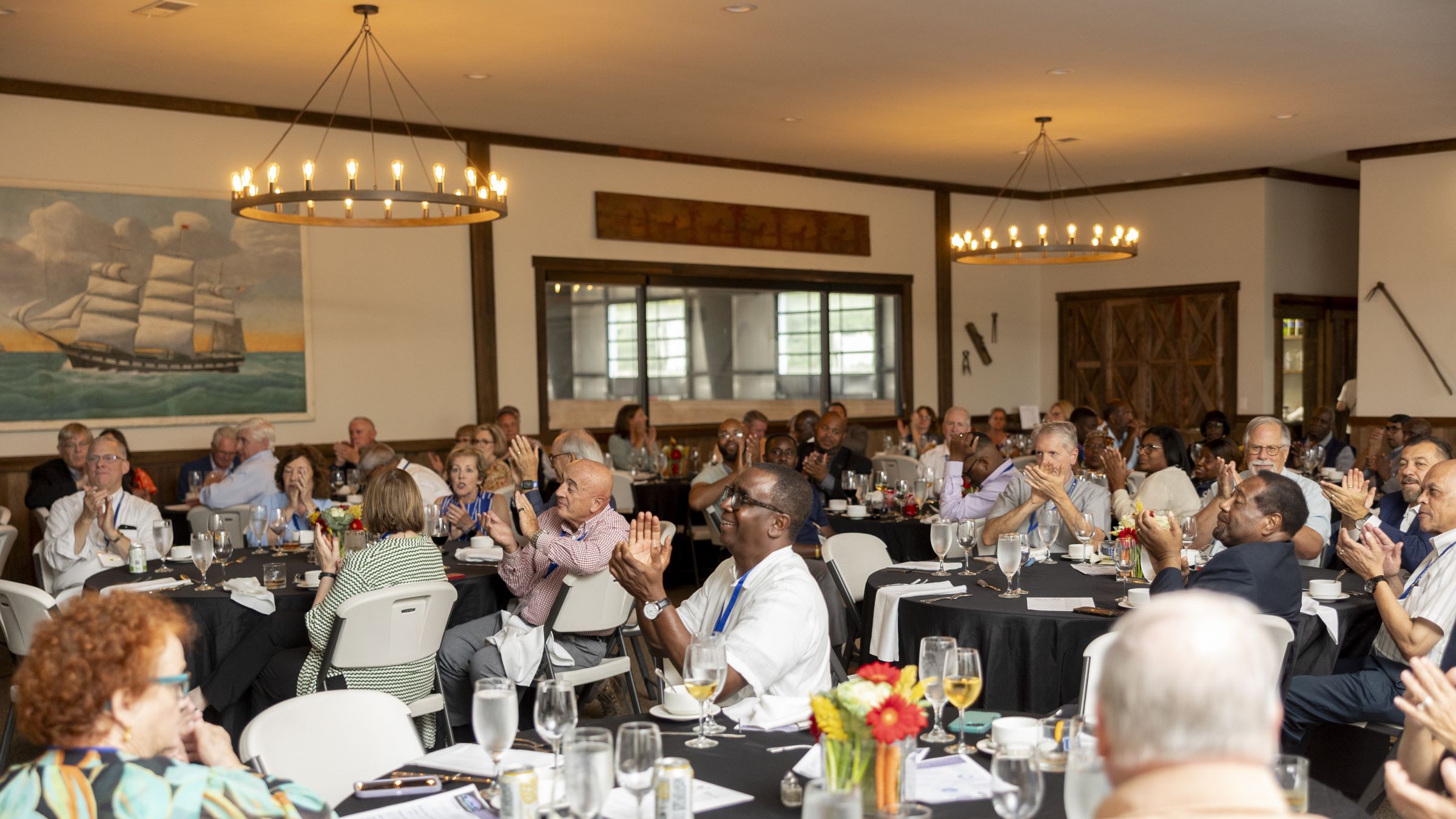University of Kentucky hosts regional conference for agricultural advancement, community well-being and economic growth
University of Kentucky hosts regional conference for agricultural advancement, community well-being and economic growth


The Southern Region Administrative Heads and Council on Agricultural Research, Extension and Teaching (S-AHS/CARET) conference included deans and senior leaders from land-grant institutions in the southern region. The national Council on Agricultural Research, Extension and Teaching (CARET) is comprised of industry leaders, producers and advocates of land-grant institutions.
The conference provided an opportunity for leaders and stakeholders to discuss how land-grant universities and colleges can advance agricultural industries, support community health and well-being, and accelerate economic and workforce development in their states.
Attendees heard from food and agriculture leaders and explored the rich agricultural industry in Central Kentucky, including locations such as the James B. Beam Institute for Kentucky Spirits, Harold R. Benson Research and Demonstration Farm, C. Oran Little Research Center and Spy Coast Farm.
Each group held business sessions, which included updates from each institution on policy matters related to the farm bill. These sessions aimed to build opportunities for cross-institution partnerships to benefit each state.
“It was a privilege to share this impactful event with our partner Kentucky State University,” said Nancy Cox, vice president of Land-Grant Engagement and dean of Martin-Gatton College of Agriculture, Food and Environment. “This conference was special because of the perspectives from our citizen partners on CARET. Together we are working to enhance our agricultural industries, bolster community health and drive economic development throughout the Southern region.”
The conference reflected the partnership between Kentucky’s two land-grant institutions and the shared commitment to advancing the Commonwealth and its people. UK became a land-grant institution through the Morrill Act of 1862, created to help working-class citizens access higher education with a focus on farming and mechanical skills. KSU gained its land-grant status through the Morrill Act of 1890, which addressed educational inequalities among people of color.
“The extraordinary connection between our 1862 state land-grant universities and 1890 Historically Black Colleges and Universities is exemplified through the goal of creating partnerships that extend expertise in research, teaching and Extension to our stakeholders,” said Douglas Steele, the Association of Public Land-Grant Universities (APLU) vice president of food, agriculture and natural resources. “These partnerships are built on our common goals and complementary capabilities to truly make a difference to the clientele we serve across the state.”
CARET was created in 1982 by the APLU to enhance national support and understanding of the land-grant university systems. The council also helps advise the food and agricultural research, extension and teaching programs at land-grant institutions — enhancing the quality of life for all Kentuckians.
The AHS and CARET are both part of the APLU, whose mission is to foster a community of public and land-grant university leaders committed to equitably improving the lives and livelihoods of individuals, communities and society through the continuous advancement of public higher education.
“It was a fulfilling three days in Lexington attending meetings and touring facilities on the UK and KSU campuses,” said Brent Elrod, the National Institute of Food and Agriculture (NIFA) science programs analysis officer. “It’s important to see and hear about the impacts of federal funding in advancing the land-grant university mission across the southern region. The return on investment of the research, teaching and extension has led to demonstrable advances in food and agricultural science. This is reflected in the improved bottom line of producers and increased access to safe, affordable and nutritious food for consumers living in the South.”
# # #
The Martin-Gatton College of Agriculture, Food and Environment is an Equal Opportunity Organization with respect to education and employment and authorization to provide research, education information and other services only to individuals and institutions that function without regard to economic or social status and will not discriminate on the basis of race, color, ethnic origin, national origin, creed, religion, political belief, sex, sexual orientation, gender identity, gender expression, pregnancy, marital status, genetic information, age, veteran status, physical or mental disability or reprisal or retaliation for prior civil rights activity.
Events

